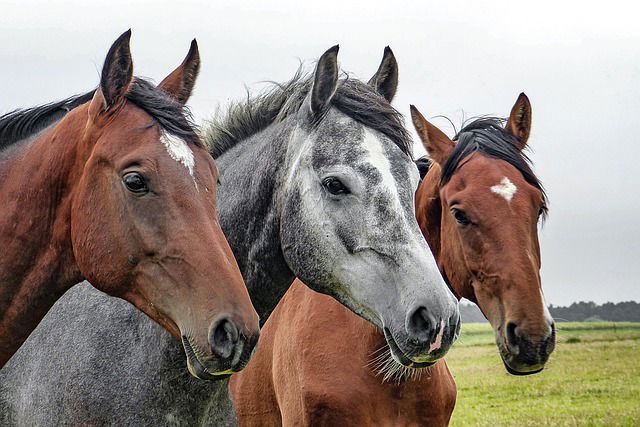
Do you ever feel like animals can understand you better than humans sometimes?
Imagine how much more powerful it could be if that interaction was part of therapy!
In a fascinating new study, researchers from Columbia University Medical Center and the New York State Psychiatric Institute are seeing if working with horses can help veterans struggling with Post-Traumatic Stress Disorder (PTSD).
Why horses, you ask?
Well, according to Dr. Prudence Fisher, a researcher leading the study, horses, just like us, are highly social creatures. They are also very sensitive to other beings’ emotional states.
But the striking similarity between horses and people with PTSD is their hypervigilance towards potential dangers. So, it’s possible that these animals could reflect the feelings experienced by people with PTSD.
PTSD is a serious problem for veterans, with an estimated 14% to 30% at risk. Current treatment methods often don’t work for everyone, and some people even drop out of therapy.
Could horses be the solution to this problem?
Though horse therapy has been used to help children and adults with mental health issues, including PTSD, the actual data on its effectiveness is pretty slim.
Dr. Yuval Neria, a PTSD expert at Columbia, highlights the need for standardized therapy programs using horses to truly determine their effectiveness.
For their study, the researchers are bringing in at least 60 veterans diagnosed with PTSD. They will attend therapy sessions at the Bergen County Equestrian Center in New Jersey, where, under the guidance of therapists and horse specialists, they will groom and feed the horses.
The researchers will track the veterans’ progress to see if the therapy makes them more resilient and better at managing PTSD symptoms.
If this study shows positive results, it could pave the way for more research comparing horse therapy with other PTSD treatments. Plus, it could lead to discovering if this unique therapy might change the brain’s structure and function.
Dr. Fisher hopes that interacting with the horses will allow the veterans to recognize a bit of themselves in these animals, aiding them in controlling their own emotions even when they’re not in danger.
This innovative study just goes to show how unique therapeutic approaches can make a huge difference! So, it seems our four-legged friends might be offering more than just a friendly neigh!



